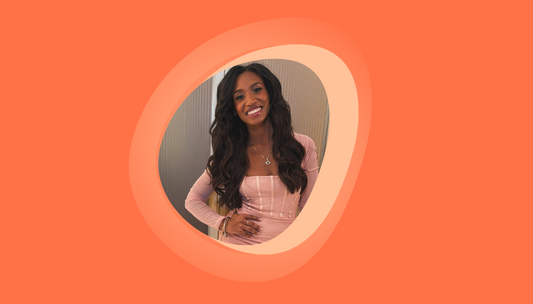From Struggle to Support: The Journey That Inspired get dopa
Read time 5 mins
It was 5.30pm on a Wednesday afternoon back in 2022. I had a splitting headache, I’d skipped breakfast and lunch (again) and as I walked out of the meeting in my stressful corporate job, something frightening hit me. I couldn’t remember anything that had been said in the last two hours.
That day was simultaneously the best and worst of my life.
The worst – because I thought something was seriously wrong with my brain – surely it must be something critical (or even life-threatening?) if I my memory wasn’t working?
The best – because that day marks the beginning of the get dopa journey.
If you’re here reading this, then you probably know what happened next. I discovered I have ADHD. As much as it was a relief to learn what had been causing my health issues, facing a diagnosis for a condition I knew nothing about, or anybody else with, is a lonely and daunting place to be.
Back then in 2022, there was less public awareness or discussions in public forums and fewer places to find content and positive stories. Today, in 2025, you can fire up the socials and find a wealth of ADHD information. Neurodivergent creators openly and generously share their stories and personal experiences – the highs and lows of what it means to live every day with a busy brain. The sharing of these experiences plays an important role in breaking down outdated stereotypes and stigmas, and making people feel seen.
But in those early days, I felt vulnerable, broken and not good enough. I felt misunderstood, and, looking back at my past, I resented the many negative experiences I’d had with teachers, bosses, partners and friends. In short, I felt very disconnected.
At the same time, we were emerging from the pandemic, which was no doubt one of the toughest periods in recent history when it comes to mental health. For me, getting out and playing sports has always been my happy place, and my mental health suffered when that got taken away. Months on end of being separated from families and friends left many of us feeling isolated and low.
(By the way, if you’d like to read more about the impact of the lockdown on a neurodivergent mind, read this article by Carl Mumford about the huge impact the pandemic had on him and his mental health.)
Post pandemic, with this new information about myself, and the world opening back up, I started to share how I was feeling with my nearest and dearest. They were kind enough to put me in touch with friends of theirs who have ADHD, and I was able to connect with others who just got it. Around these people, I could finally drop the mask I didn’t even know I’d been wearing, and it felt amazing.
Seeing how others had navigated their own journeys was the turning point in how I felt about my ADHD. Thanks to them, I started to not only accept but embrace my unique brain.
(I’ve spoken previously about the five emotional stages of an adult ADHD diagnosis, and I know from your kind messages that many of you resonated with the things I discussed in the article. A big ‘thank you’ to everyone who took the time to reach out.)
Feeling empowered by this new understanding of how my brain works and a new positive attitude, I decided to create get dopa, a supplement inspired by my own needs and designed to support my wellbeing and performance. Nourishing my busy brain is hugely important, but I knew this was only part of the bigger picture. Reflecting on how helpful all those honest chats and sharing of experiences and coping strategies had been to get me through the tough days I realised I wanted to create a space for other people like me to connect.
So, alongside get dopa, we created get dopa unmasked - a platform dedicated to amplifying content from neurodivergent experts, and for sharing lived experiences. Our aim is to create a community that shares accessible, relatable advice and helps people feel seen and not alone.
I’m so proud of how far we’ve come, and how many connections we’ve made within our kind, supportive, funny ADHD community. We’ve partnered with expert nutritionists, coaches and neuroscientists to bring you empowering and enlightening content in the form of blogs, webinars and e-books. Our creators and our community members have joined us for all manner of neurodivergent-focused events, from yoga to meditation, to comedy nights to quad biking. Seeing everyone talking, bonding, laughing and sharing their wins and losses, both online and in-person, makes me realise just how far things have come from those lonely, scary days back in 2022. I feel so fortunate that I am able to play even a small part in helping others unmask and connect.
So what next for get dopa? We’re really excited to be working with our ambassador, Nicole Brünewald-Bridi. You may recognise Nicole and her partner Benaiah from Love is Blind UK, and you can hear more from them about Nic’s ADHD discovery journey in their ‘unmasked session’ here.
We’ll also be bringing you a series of webinars from some high-profile experts in the neurodivergent space, covering topics such as nutrition, and the impact of hormones on ADHD, as well as continuing to share informative, fun and empowering content via our socials, website and newsletters.
Got something you’d like to see in future? This is your community, so if there’s something we can share to help you navigate your ADHD journey, then why not drop us a message and let us know? We’re always here for you.
Thanks for reading.
Love,
Matt, founder

The gift of being misunderstood (kind of)
Read time 4 mins

Christmas, alone (in my head… and kind of loving it)
Read time 4 mins

Healing your inner critic
Read time 6 mins






